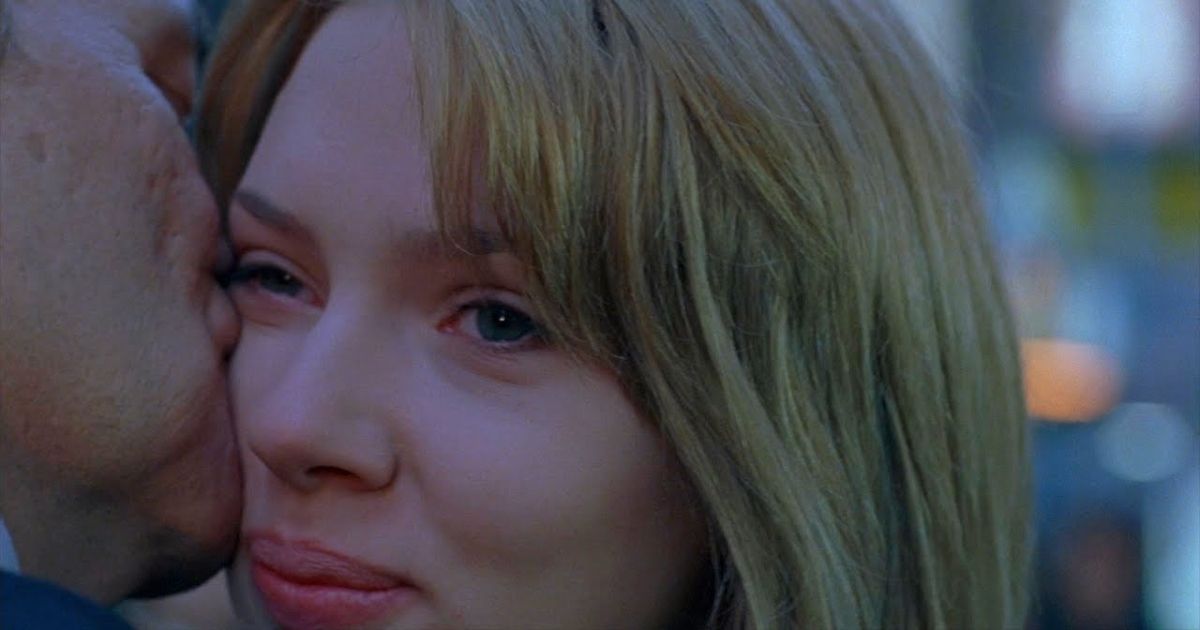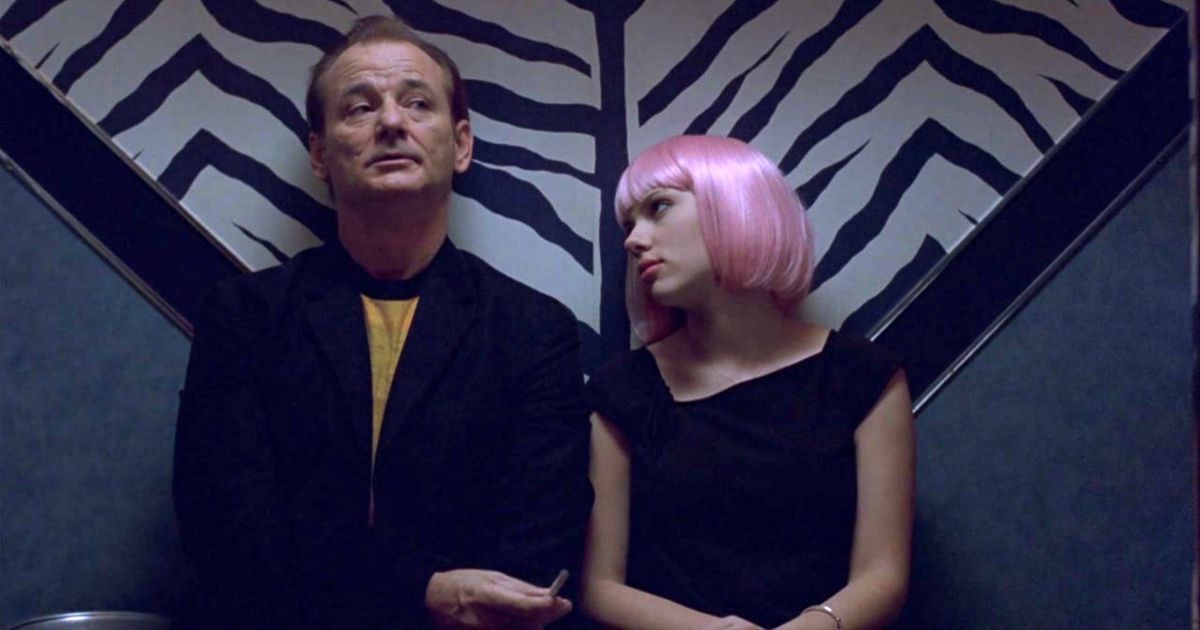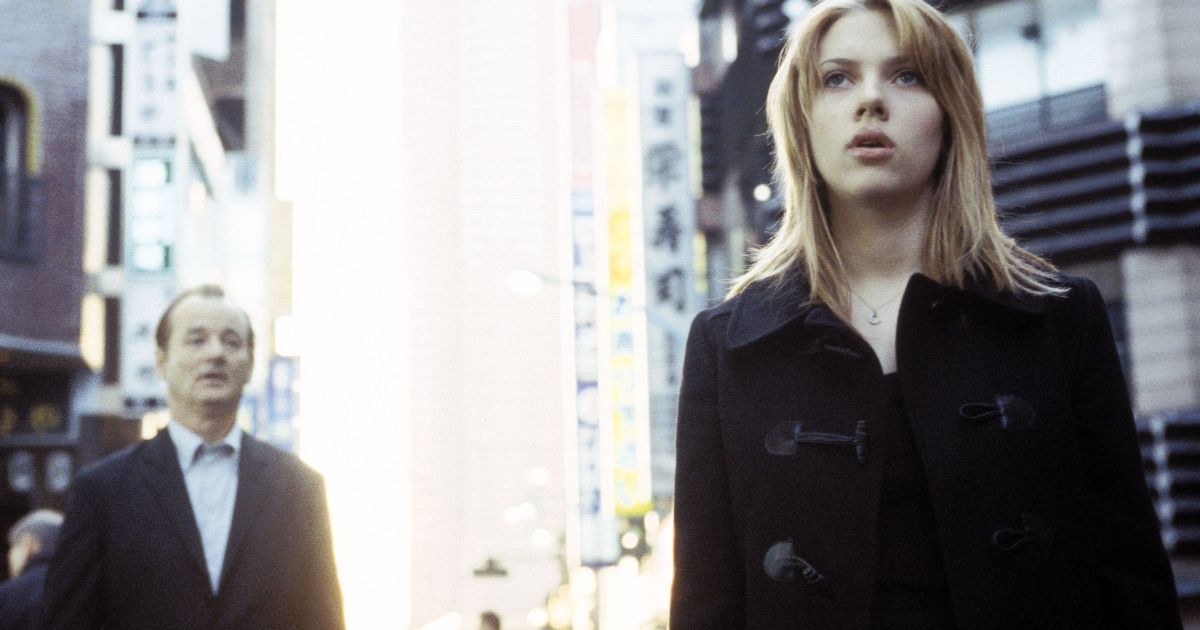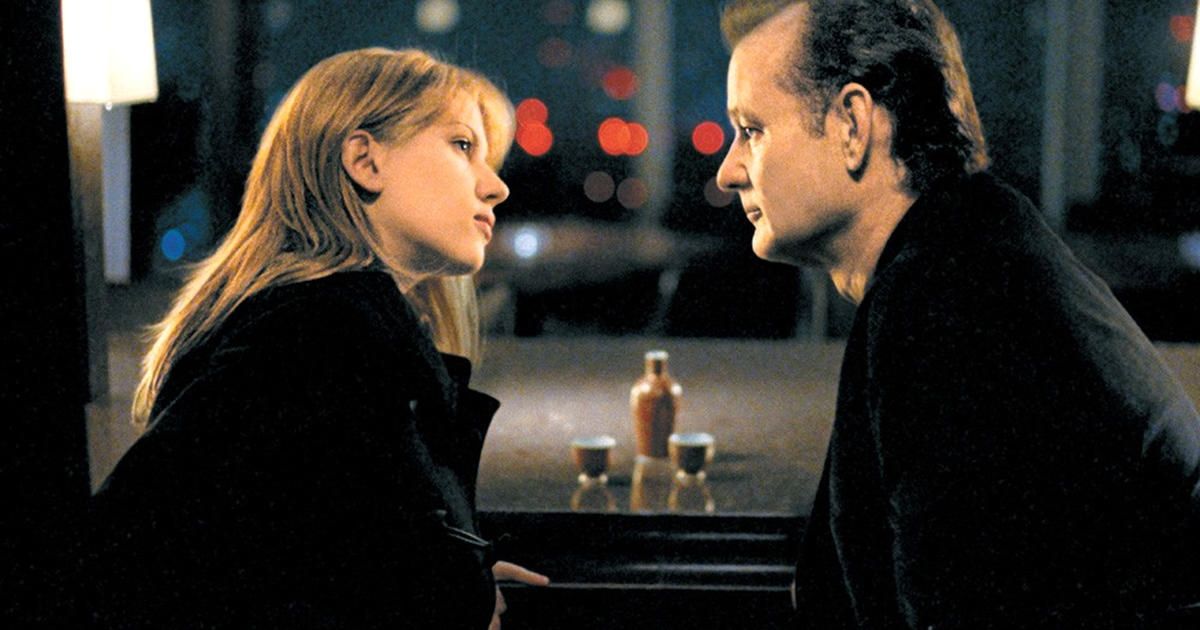For many, Lost in Translation is one of the most beautiful stories ever written. The emotionally charged, yet romantically ambiguous relationship between Billy Murray’s Bob Harris and Scarlett Johansson’s Charlotte is rare in Hollywood. In so many ways, the chemistry the two share doesn’t feel prepared or created. Rather, it feels natural, and reminds people of similar encounters they may have had in life.
While the feelings projected in the film are all part of its mystique, it was the unique final scene that made Lost in Translation a part of cinema culture. Similar to what The Soprano’s would eventually delve into with their own finale, director Sofia Coppola presented a moment that leaves the viewer to choose their own dialogue. Rather than give us the words, we’re left to guess what was whispered at the end of Lost in Translation.
The Story Behind the Whisper
Bob Harris is an American film star who is on a steady decline in his career. Played by Murray, who at the time was just north of 60 years old, the character heads to Tokyo for some commercial appearances. Typically seen as a lucrative option for aging stars, Japanese advertising is a common choice at that stage of a career. However, it isn’t just his career that is hitting rough times for Harris. His marriage is too. It’s all weighing heavily on his mind as he goes to the land of the rising sun. Staying at the Park Hyatt Tokyo, he crosses paths with Charlotte. A recent college graduate and wife to a celebrity photographer named John, Johansson’s character has a lot in common with Harris. She seems to be lost in her marriage and seems lost in life, much as she is in Japan.
When Bob and Charlotte decide to spend time together to pass the time, the results create a visceral sense of puppy love. You can feel the forbidden romance between the two simmering just below the surface, but it’s hard to tell. Between marriage, age differences, and a general feeling that we might be misreading the situation, the tension between the two is difficult to parse. In that, Lost in Translation genuinely finds a unique foothold within the romance genre.
On one of their final nights out, Bob takes a jazz singer from the local bar back to his room. When Charlotte hears her singing, she becomes noticeably upset. Suddenly, the romantic chemistry between the two feels less like an accidental byproduct of friendship and more like a feeling both stars have been actively avoiding. It becomes obvious that Bob's decision hurt her and that hurt tells us a lot about what we have been witnessing.
The two eventually share an awkward goodbye. They exchange glances and appear to leave many things unsaid. As a group of fans poses for a picture with Bob, he watches this woman disappear from his life with the closing of an elevator door. The next scene, where he is in a taxi and heading to the airport, could very easily be the final one, but it’s not. That’s because he spies Charlotte walking down the street from his window. He has the driver come to a stop, gets out, and approaches.
“Hey you,” Harris says as he walks up to Charlotte, She turns to him with tears already in her eyes, and the two embrace. It is an emotional outpouring all with a single action. That’s when he pulls her close and whispers in her ear — something that only she can hear. They finally kiss, and he walks away, watching her as he steps backward towards his taxi. It’s one of the most moving non-verbal moments in movie history.
The Speculation Behind the Whisper
Some loved this ending. Some hated it. The ambiguous “whatever you want it to be” finish is something that has long been an issue for Lost in Translation fans. While it’s beloved for its bravery and artistic approach, it can sometimes be reviled for the hands-off approach it seems to take. While this ending certainly felt both sides of that reaction, it seems to have earned more favor than scorn.
Originally, though, the script had words in it for Murray’s final embrace. According to Daily Script, the true words that were meant to be Bob asking, “Why are you crying?” To which Charlotte would reply, “I’ll miss you.” That’s when he would answer, “I know. I’m going to miss you too.”
Seem anticlimactic? That’s because it would have been. It could also be why the scene was purposely altered to the one we saw today. It’s a final moment that still, 20 years later, is being debated by people all over. In 2013, ten years after its release, Vulture compiled some of the top contenders for the enigmatic whisper’s actual words. The three top guesses were:
- "I have to be leaving, but I won’t let that come between us. Okay?"
- "You'll always be an independent woman; don't part mad. Tell the truth. Okay."
- "When John is waiting on the next business trip, go up to that man, and tell him the truth. Okay?"
All three have a final “okay” in common, however, that’s about the extent of their similarities. None seem to capture the emotion that this movie created and put into the big ending. Would any of them have been right? Does anyone know for sure? One person definitely does.
The Truth Behind the Whisper
Coppola herself may not know the exact words, but she knows what she wanted. The ending of Lost in Translation, even with actual dialogue in the script, was never meant to be anything concrete. The way it played out worked exactly as she had wanted. As Coppola told IndieWire in 2018, "That thing Bill whispers to Scarlett was never intended to be anything. I was going to figure out later what to say and add it in and then we never did. It was between them. Just acknowledging that week meant something to both of them and it affects them going back to their lives. People always ask me what’s said. I always like Bill’s answer: that it’s between lovers — so I’ll leave it at that."
That one statement perhaps sums it all up perfectly. The moments shared by the two are the intimate moments that two people, obviously connected through the universe, cherish. Circumstances like age, distance, and availability may make their relationship impossible. Yet, this one point in time, as he held her in his arms, was the true pinnacle of what they’d ever have. Any words he whispered to her would have been perfect for her ears. An audience, watching as an outside spectator would probably be a bit more demanding.
That’s why Coppola’s choice to let us put our own words in that spot work so well. We all know what we might say in Bob’s position or what we might want to hear in Charlotte’s. That is why Lost in Translation may have created the perfect ending, without writing one at all.




